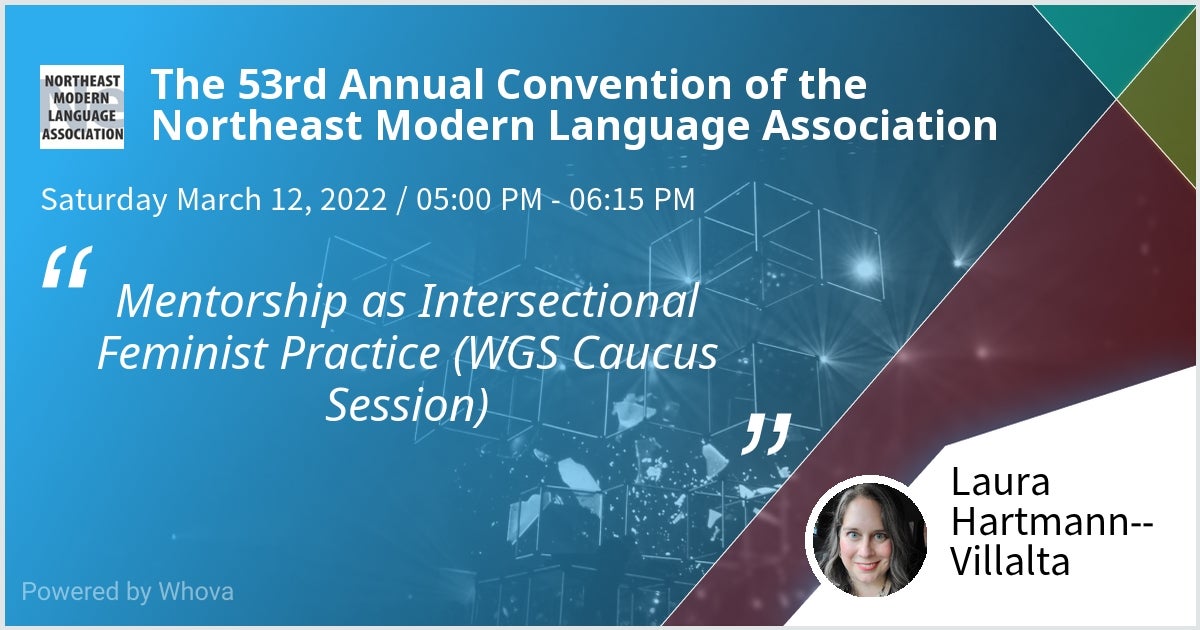Laura Hartmann-Villalta Co-Chaired a Roundtable and Presented Her Work at the Northeast Modern Language Association 53rd Annual Convention

Posted in Past events | Tagged Laura Hartmann-Villalta, Spring 2022
Laura Hartmann-Villalta co-chaired, alongside Lauren Kuryloski, the New Directions in Feminist Pedagogy Roundtable at the Northeast Modern Language Association 53rd Annual Convention, which took place between March 10 and 13, 2022 in Baltimore, Maryland, and was hosted by the Johns Hopkins University. The New Directions in Feminist Pedagogy Roundtable asked participants to engage with and present the new directions in feminist pedagogy that inevitably emerged in the past two years (2020-2022) during the coronavirus pandemic, but also beyond it. Grounded in feminism, this roundtable asked participants to present their innovations in pedagogy across a spectrum of challenges. That way, it sought to address: How does contemporary feminist pedagogy confront the challenges inherent in a post-truth era and a divided political body; take on the work of anti-racism; and adapt to the monumental shift online during the coronavirus pandemic… all while honoring feminist principles?
Hartmann-Villalta also presented her work at the Mentorship as Intersectional Feminist Practice (WGS Caucus Session) Roundtable, which was co-chaired by Lisa Propst, Clarkson and Maria Rovito, and invited submissions to explore questions such as: How can mentoring challenge exclusionary institutional structures, policies, and procedures? How can mentoring address the varied dimensions of the lives of mentees and mentors? What enables mentoring to take shape as a collaborative relationship that provides mutual care and support? How best to mentor the mentors – in terms of both caring for mentors and helping them recognize their own blindspots in addressing the needs of mentees? In that roundtable, Hartmann-Villalta presented her paper “Pairing Up: Obstacles for Peer Mentoring and How to Overcome Them”. She talked about the value of peer mentoring, with its “give-and-take dynamic that is not hierarchically constituted”, proposing that “for mentorship to be an intersectional feminist practice, there must be a commitment to seeing each other as whole people, not just as academic professionals”. Though she recognizes that there might still be barriers that affect peer mentorship, she argues that with peers, these factors “are more easily recognizable and therefore at least potentially navigable”. Awareness of these dynamics and acknowledging them in partnership are important steps to strategize for success.
View the Call for Papers of the New Directions in Feminist Pedagogy Roundtable (closed).
Read the abstract of “Pairing Up: Obstacles for Peer Mentoring and How to Overcome Them”.

